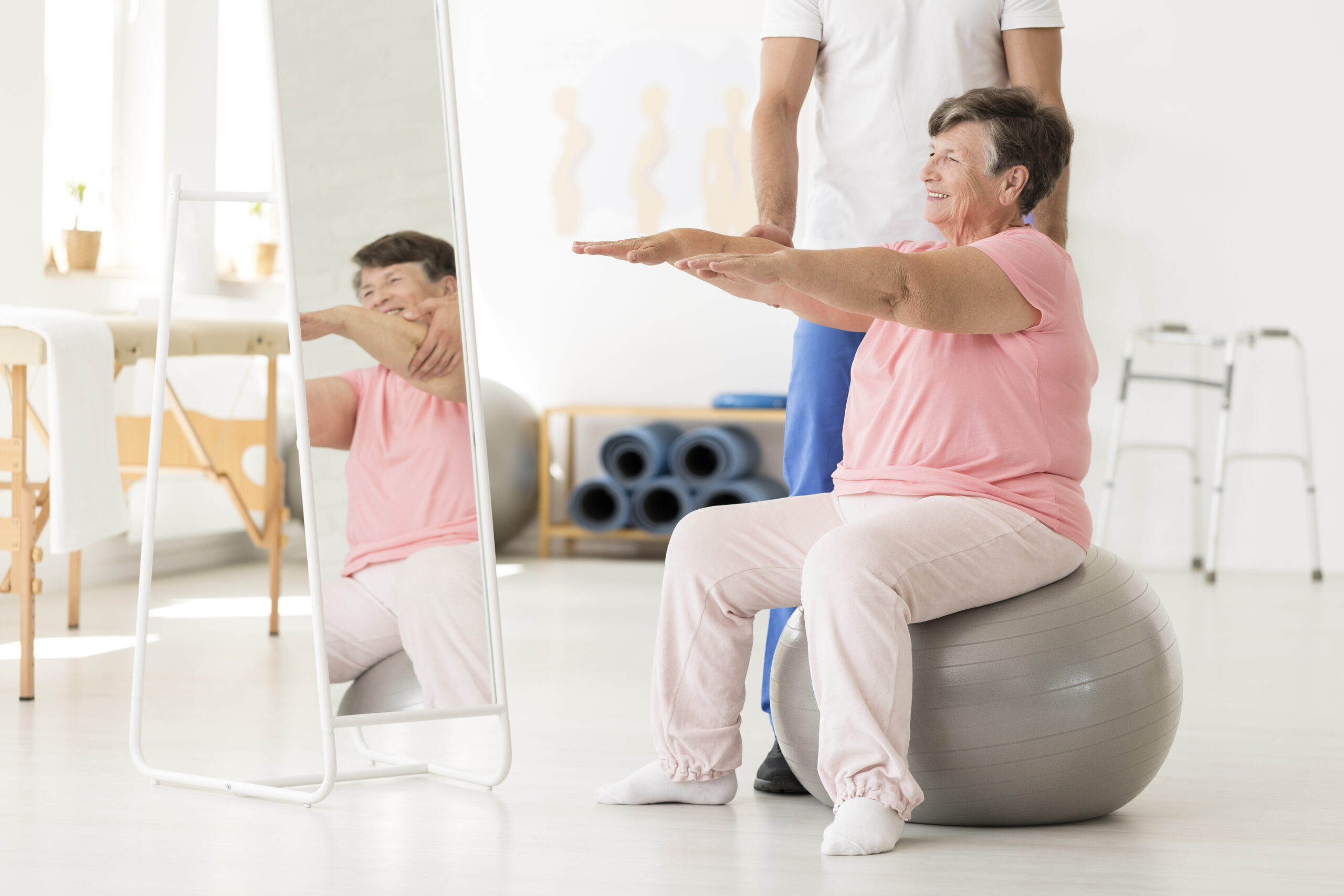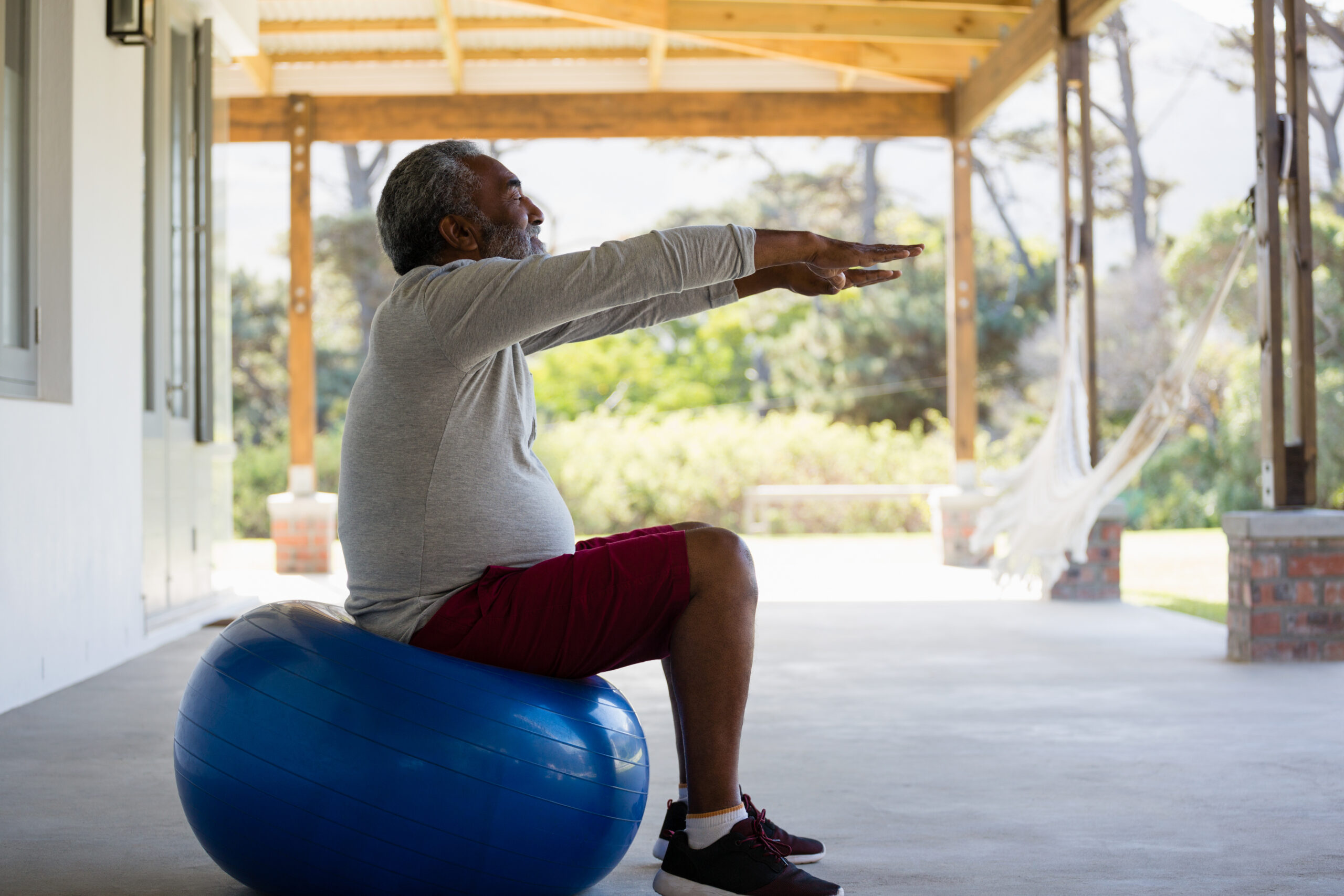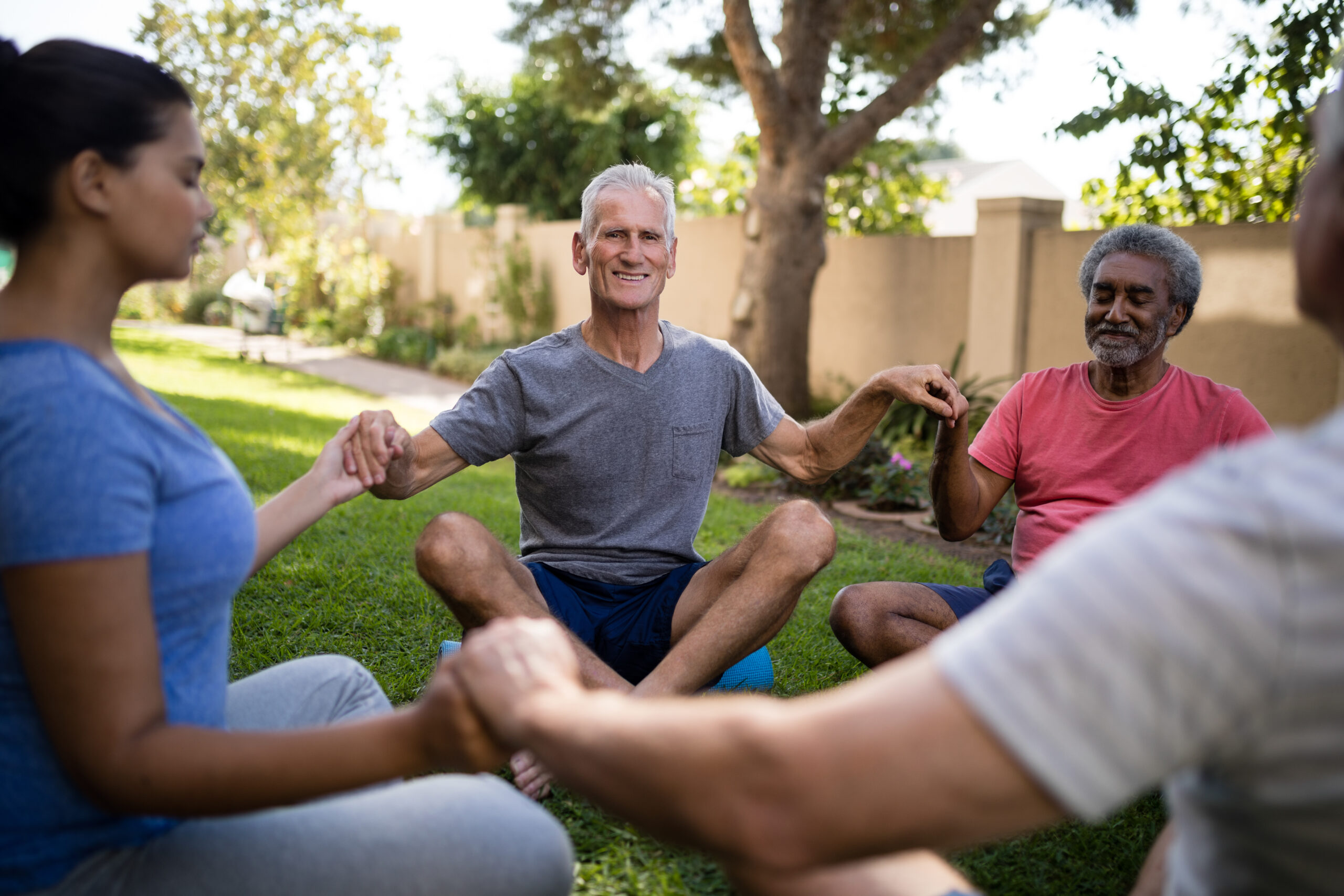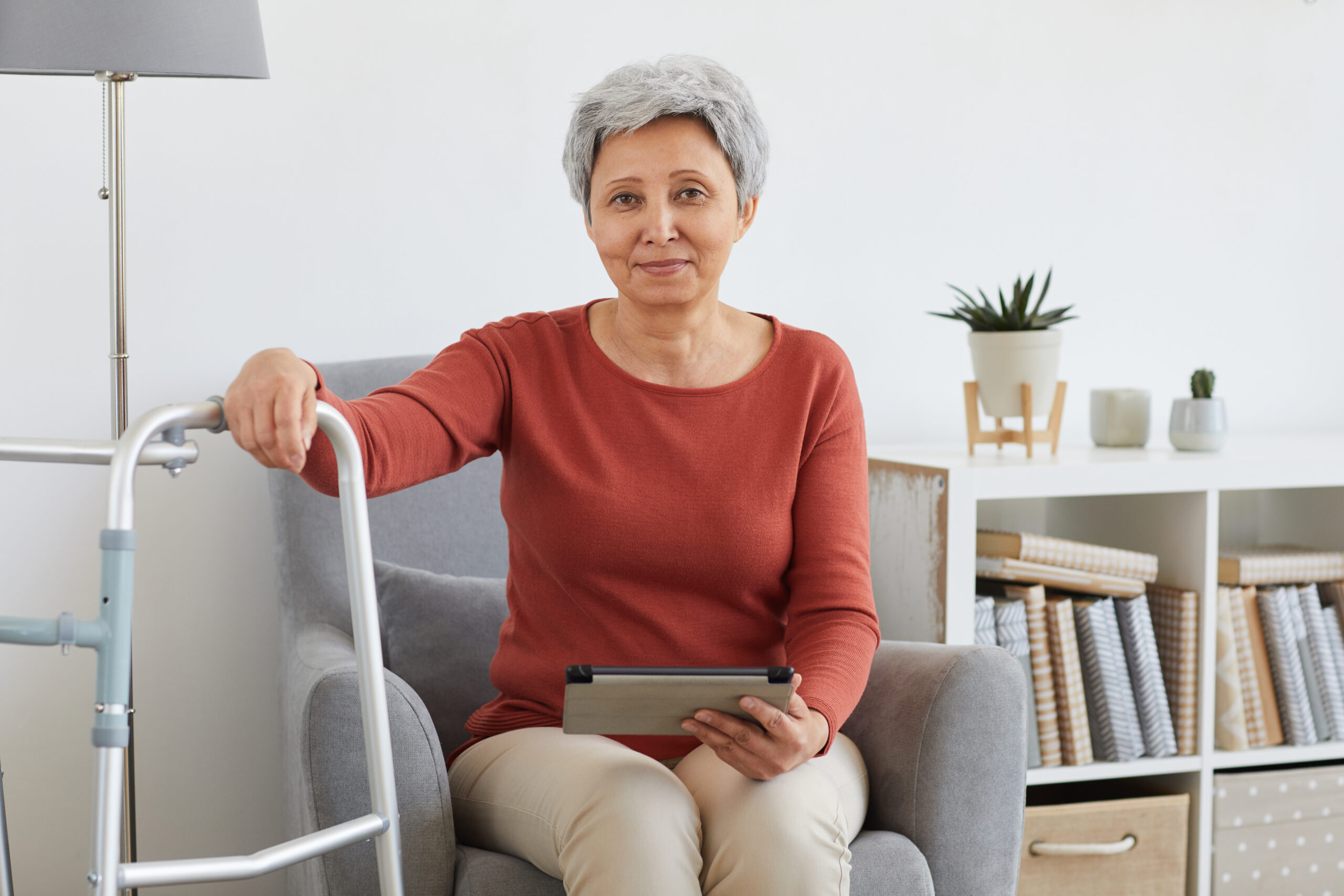Tips for Staying Safe This Fall

Daylight savings is coming to an end, and fall is approaching us quickly.
This time of year is full of beautiful autumn colors. The weather starts to cool down, and the days become shorter and nights, longer. But with all things in life, it's important to take note of ways we can keep our loved ones safe through environmental changes. Here are a few of our tips to keep the seniors in your life safe this new season.
Prevent Falls and Accidents
Each year about 3 million older adults are treated in emergency departments for fall injuries, according to the Centers for Disease Control and Prevention (CDC). It’s safe to say that some of these falls may be in autumn.
The autumn leaves decorating your driveway might be mesmerizing to look at, but it is important to rake them up regularly as they are a slip hazard for seniors. Keep all pathways and driveways clear of any debris so that your loved ones are able to walk safely to and from their home.
As the days get shorter, there won’t be as much natural light in and around the house. Make sure all the lightbulbs are changed to ensure there’s plenty of light, so your loved ones can get around easily. Also, make sure there are extra batteries and flashlights for emergency situations to help your seniors prepare for any kind of event.
It is important to take preventative measures to protect the senior in your life from falling or having an accident. Slip free shoes, handrails, plenty of lighting, are all simple ways to ensure the safety of seniors indoors and out.
If the senior in your life already has a hard time getting around due to a back or knee injury, physical therapy is a great option for them to gain back their strength and be able to navigate through their homes and outside of their homes safely. Here at Liberty, we provide physical therapy for our homecare patients, and will make sure to provide your seniors with the tools necessary to be able to safely get in and around their home.
Fire and Carbon Monoxide Monitors
According to John Hopkins Medicine, space heaters increase the chances of carbon monoxide poisoning. By hiring a professional to check all furnaces and heaters, you can ensure they are working properly for the cooler days and would keep your seniors safer throughout fall and winter.
As daylight savings time is ending, it would also be a good idea to change out the batteries in the fire alarm systems, along with the carbon monoxide detector. Check them again in March when daylight savings starts back up. This schedule will make it easier for everyone to remember when the last update was.
Stay Healthy and Active
Unfortunately, with the beautiful autumn leaves and crisp weather comes... flu season. It is important to remind your seniors and everyone that comes in contact with them to wash their hands with soap and water regularly. Keeping germs at bay will help decrease the chances of catching the flu and spreading it to others. Also, make sure your senior speaks with their doctor on whether or not they should get a flu shot.
Having a healthy diet along with regular exercise are also great ways to stay healthy during the fall. Whether it’s taking a walk outside in the newly crisp air or participating in a community yoga class, it’s important for senior citizens to move their bodies and get their blood flowing. Regular exercise helps strengthen the body and promotes healthy joints, which in return, helps prevent falls. If your senior feels like their body is not able to perform daily exercise due to pain, injury or a chronic condition, physical therapy exercises can help restore their body function and get them back to exercising as close to pain free as possible.
While we can take many preventative measures to ensure the safety of our seniors, if the senior in your life is suffering from chronic back, knee or joint pain, these symptoms increase their risk of taking a fall. Contact Liberty Homecare and Hospice Services to learn more about our physical therapy services. Through these services, we support seniors to be able to perform their daily activities with confidence and reduce costly trips back and forth to the hospital.
Ask your medical doctor to fill out a referral for our Physical Therapy services on our website. Let Liberty help you receive the expert care you deserve.
Seniors Can Monitor Their Health with Technology

In today’s digital age, there are more options for keeping track of your health than ever before. From smart watches to apps, older adults can monitor their health from the comfort of their own home. This can make it easier to keep track of daily habits and any health conditions that require recording symptoms in between doctor visits. Health professionals use this vital information to provide the best care for their patients and identify any changes in a patient’s health. Let’s take a look at how seniors can monitor their health with technology.
Tech Designed to Help Patients Track Their Health
Apps to Manage Medications
To help your loved one maintain their health, it’s important that they take their medications at the right time and use the correct dosage. If they have multiple medications, this can easily become confusing and overwhelming to manage on their own. Additionally, some medications must be taken with or without food to avoid causing stomach issues.
Luckily, there are apps and devices designed to help people manage their medications. Seniors can download and use a medication reminder app. These health apps help people track their medications, send refill medication reminders, and notify the user of when they need to take their medications. Your loved one will hear an alert and notification, which will display on their phone’s home screen with instructions on what to take and when.
Alternatively, your loved one may benefit from a medical management device instead. This does not require a smartphone, which some seniors may struggle to use based on their health conditions. A medical management device will hold a few days worth of medication with different alarms that beep and vibrate when it’s for your loved one to take their medicine. Some devices also offer phone call options, which include emergency contact lines in case a senior needs to call for help.
Devices to Track Pain and Symptoms
If your loved one suffers from chronic pain or changes in their health, this has a significant impact on their overall health and well-being. They will likely need to keep track of their symptoms and changes in health, which can be difficult to monitor on their own. Doctors need this vital information to provide the best treatment plan for your loved one.
Like the medication management apps, there are digital health monitoring devices and apps designed to track a person’s health, and symptoms. This is an effective way for older adults to continue living on their own for as long as possible, but also being able to keep track of their health changes in an easy, user-friendly way. You can find several options for wearable medical alert devices for older adults, such as MobileHelp or Medical Guardian. These devices that are worn on the wrist track a person’s biometric data (i.e. brainwaves, heart rate, muscle biosignals, and more) and provide key data related to their specific health conditions.
Additionally, older adults also have access to health apps that track changes to a person’s health. These highly advanced apps will track when a senior experiences pain and symptoms. The apps will even show the location of the pain on an image of a human body, which helps health professionals know where the pain is coming from. These apps also include medication logs and graphs showing health trends over time.
At Liberty Homecare and Hospice services, we use new telemonitoring technology that is implemented into a patient’s home and enables our professionals to monitor patients' health virtually. Alongside monitoring the health of our patients, our telemonitoring system provides the patient with access to our professionals at any time by phone or internet. The health information being gathered in real time, helps our professionals make the best decisions possible during the virtual appointments. Our telemonitoring services are a great way to be able to stay connected to your healthcare professional from the comfort of your home.
Find the Right Tech for Your Loved One’s Needs
As new technology continually emerges, it can feel overwhelming to find the best device and/or app for your loved one’s needs. We recommend discussing with your loved one’s primary care for recommendations and doing research for high-quality health products. While it may be a more costly investment, having peace of mind that your loved one can continue to safely live at home, manage their health, and take their medications correctly is worth it. Contact Liberty HomeCare and Hospice Services today to learn more about our telemonitoring services designed to help seniors achieve their health goals and maintain their independence.
Liberty Healthcare’s Commitment To Employee Wellness Earns Award

Liberty Healthcare Management is a proud winner of the Aetna Workplace Well-being Inspiring Change Award.
The Aetna Workplace Well-being Award program aims to create a healthier workplace for employees through innovative programs.
Liberty Healthcare received the award based on an evaluation of our Wellness Discount Program that incentivizes and encourages employees to get an annual physical and other preventative screenings depending on their age.
The requirements for the preventative screenings include:
- Mammogram for women ages 40 to 69 every 12-24 months
- Cervical Cancer Screening for women ages 21 to 64 every 36 months
- Colorectal Cancer Screening for adults ages 50 to 75
o Fecal Occult Blood Test every year
o Cologuard Test every 3 years
o Sigmoidoscopy every 5 years or Colonoscopy every 10 years
By participating in the Wellness Discount Program, an employee can earn $20 extra per pay period or $40 if their spouse participates as well. That adds up to $520 annually for individuals and $1,040 for couples.
Our incredible employees made this esteemed award possible by making their well-being a priority and taking the measures necessary to stay healthy.
Liberty Healthcare’s Well-being Mission:
“Well at work creates and maintains a culture of health by encouraging employees and their families to lead healthier lifestyles, which fosters a more engaged, productive, and committed workforce, and ultimately a more positive work environment.”
At-Home Exercises for Older Adults

No matter your age, exercise is an effective way to help live a healthy life. For older adults, getting regular physical activity can be challenging. This can be due to a lack of proper fitness space, bad weather, or not having the support necessary to maintain an exercise routine. Keep reading to discover a few easy exercises that older adults can perform at home.
Simple Exercises Helps Improve Your Long-Term Health
Older adults can gain positive health benefits from performing simple at-home exercises. While there are a wide variety of exercise types, a key goal should be to focus on improving one’s balance, mobility, and strength. In turn, this can help seniors improve their overall health and well-being, as well as increase their likelihood of living independently in the comfort of their homes.
Three At-Home Exercises for Older Adults
1. The Sit-to-Stand Exercise
When it comes to living independently, an older adult must be able to safely sit down and stand up from furniture or the toilet. If given approval from their doctor, older adults can perform a sit-to-stand exercise at home. This will help improve seniors’ core strength, leg muscles, and overall balance. To give them a challenge, seniors can stand up from a chair or bed without using their hands. In turn, this can help them maintain their health and mobility.
2. The Single Lamb Stance
Like standing up, maintaining one’s balance is a crucial factor for determining whether a senior requires assistance with performing ADLs (activities of daily living). Balance is required for all types of movement, including going up and down different stairs, carrying items, and getting in and out of the shower or bathtub. By performing an exercise that focuses on balance and stability, this can help improve mobility and reduce the risk for falls.
When performing the single lamb stance, follow these tips:
- Stand with your feet together and have your arms at your side next to a chair
- Slowly raise your left foot off the floor by a few inches
- Hold this position for at least 10 seconds and then slowly switch to the other foot
- If possible, raise your left hand over your head and carefully lift your left foot, holding this position for 10 seconds
- Repeat this process with the other arm and leg
3. Marching In Place
Walking is an excellent, low-impact form of exercise for people of all ages. Seniors that regularly walk can benefit from stronger muscles, reduced risk of diabetes, falls, heart disease, osteoporosis, stroke, and weight, as well as better balance. Of course, it’s not realistic that you can always go outside and walk. This is where marching in place makes a great simple exercise to do at home. Older adults can hold on to a stable surface like a counter or a chair to maintain their balance while marching. It’s recommended to stand straight and slowly lift your right knee as high as you can. Then, lower that knee and switch to the left knee and repeat this process. If possible, try to perform this exercise for a total of 20 times.
While you may think you are too old to start exercising, this is far from true! It’s always a good time to exercise, as long as you have received approval from your doctor. These 3 basic exercises are an easy way to start a physical activity routine for just 10 minutes a day. Overtime, you may find that you are ready to add more exercises into your routine. Health experts recommend performing 150 minutes of physical activity a week. Keep in mind that this number will vary depending on each senior’s specific health needs.
We hope you found this week’s article helpful discussing simple at-home exercises to perform. Contact Liberty HomeCare and Hospice Services today to learn more about our expert, compassionate care designed to help our amazing seniors achieve their health goals and live the highest quality of life possible. We offer everything from home care to hospice care.
Tips to Promote Independence for Seniors

As seniors age, a common concern is losing their independence. It’s no surprise that aging poses new challenges regarding one’s health and ability to do things on their own safely. Let’s take a look at several lifestyle tips for promoting independence for seniors.
How Can Seniors Take Control of Their Lives?
Create a Daily or Weekly Schedule
When people get older, they may feel like they no longer have a purpose. Common reasons include their children growing up and moving out, they retired from work, and/or they lost a spouse. To help them have a reason for getting up each morning, it’s a great idea to create a daily or weekly schedule. This can include eating breakfast, reading the mail, going for a walk, or even calling a close friend.
Make Time for Your Mental Health and Socializing with Others
Older adults may find that they have more doctor appointments to go to, which is necessary for staying healthy. While these appointments are important, remember to make time for your mental health. Everyone needs time to relax, spend time with friends, and do something they enjoy. Fun hobbies may include reading a favorite book, gardening, or learning a new recipe.
Make Decisions About Your Future
It’s never too late to make important plans about your future. You can meet with a financial planner or lawyer, who can help guide you on these life decisions. As you plan on your future, consider the following factors:
- The type of healthcare you would like to receive
- Choosing your power of attorney
- Choosing your health care proxy
- Choosing the types of home care and assistance you would like to receive if needed
Keep in mind that doing this will also significantly reduce the stress and pressure on your loved one’s that would be in charge of making these important healthcare decisions if you hadn’t planned it out already.
Safety Proofing Your Home
To maintain your independence for as long as possible, it’s important to create a safer home environment. This involves minor changes to your home that will make it safer to get around on your own. For example, you may consider installing non-slip floors, handrails, and using a shower bench in your bathroom. To make it easier to see at night, make sure to use nightlights in the hallways and bathrooms. You may also want to consider wearing a safety alarm, which is a nice safety net if you were to fall down.
As you continue to age, you may find that living on your own is no longer the safest option. That doesn’t mean you have lost your independence though. You can move into a senior community home where you can still live at home, but receive assistance with housekeeping duties.
Find Ways to Relax
It can be stressful at any age, which includes older adults too. It’s important to find effective, safe ways to help you relax. For many seniors, they find that meditation and practicing mindfulness are excellent ways to reduce their anxiety, depression, and overall stress. With less stress, it’s much easier to maintain one’s independence.
Don’t Let Your Age Define Your Life
When you stay active, you are less likely to feel your actual age. This includes spending time with friends, exercising, making decisions about their lives, and practicing mindfulness. Feeling younger is a great benefit because it will help you maintain your mental and physical health.
Exercise On a Regular Basis
It’s recommended that you talk with your primary care doctor to determine if you are healthy enough for regular exercise. If you are, ask them for specific suggestions for how you can stay fit. By exercising on a daily basis, it will be easier to maintain your balance, mobility, and weight. You will also reduce your risks of falls, which is a main reason that causes seniors to lose their independence.
Connect with Friends
While family and caregivers play a key role in helping you stay healthy and maintain your independence, it’s essential that you make time to connect with friends. By socializing, it will help keep your brain healthy and help reduce your risk of mental illnesses later on. Who knew spending time with others was so important?
Find New Hobbies
Aging can lead to new challenges regarding what you do for fun. If you can no longer participate in certain hobbies, this is a great opportunity to find a new hobby. This will help give you a purpose and likely lead to making new friends!
We hope you enjoyed this week’s article about tips for promoting seniors’ independence. It’s never easy getting older, but you can still enjoy life and maintain your independence for as long as possible. By using these lifestyle tips, you can take the steps to maintain your long-term health and wellness too. Contact Liberty HomeCare and Hospice Services today to learn how we can help you achieve your independence through our home care services.
Why a Family Support System is Important for the Elderly

As people age, having a family support system is crucial for the elderly. A support system provides a social network, helps improve their loved one’s health, and can even extend their life compared to older adults without any friends or family. Let’s take a look at why a family support system is beneficial for the elderly.
A Direct Connection Between Family and Health
A United States Aging Survey found that 30 percent of seniors believe staying connected to family and friends is a main concern. The survey found that most seniors believe that maintaining relationships with family and friends is more important than having financial support. Aside from older adults’ views, studies have shown a direct connection between an older adult’s health and their relationship with family. Indeed, family is important for the elderly’s mental, physical, and social health.
What Are the Benefits of a Family Support System for the Elderly?
1. Longer Life Expectancy
When older adults maintain social connections with their family members, this can increase their life expectancy compared to those that are socially isolated. It may not be an obvious benefit, but a family’s presence can improve their overall health in their remaining years. This is also true for those with dementia.
2. Stronger Immune System
Older adults that have a family support system and regularly connect with others typically have stronger immune systems. This is a major benefit, especially since older adults tend to have weaker immune systems as they age. In turn, a healthier immune system will be better equipped to fight off illnesses that older adults come in contact with.
3. Better Mental Health
Another benefit for seniors that stay close with family is having improved mental health compared to those that aren’t close to loved ones. It’s important for older adults to socialize with their family and to be reminded that they are loved and valued. This can help seniors be less likely to suffer from mental illnesses like depression.
4. Better Brain Health
Older adults who stay socially connected also benefit from having higher levels of cognitive function. Studies have shown that those that enjoyed participating in social activities were more likely to have better memory and thinking skills. On the other hand, older adults that did not enjoy socializing experienced a decrease in their cognitive health.
5. A Family Support System
Like any family, the type of support and interactions change overtime. A parent that once supported and took care of their child will eventually have the roles reversed as the adult child cares for and supports the aging parent. This is a normal part of life.
For many aging parents, financial support is necessary to receive the medical care required as they age. When their family is able to offer this support, this can melt away some of the stress that an older adult may feel. This is important, especially when stress can weaken an older adult's already weakened immune system.
Additionally, emotional support is another major benefit of having a support system. It helps to have someone to talk to and listen to them about their good and bad days. This shows them that their family cares, which can have a positive impact on their outlook on life.
Another type of support is to help older adults perform daily activities, such as cleaning their house, going shopping, or even cooking. If an older adult has a bigger family, the family can take turns helping the older adult out. These simple acts can make a big difference in helping seniors not feel alone.
6. Friendships Are Important Too
Since not every older adult has family near them, they can still benefit from social connections and support from old and new friends. Studies have shown that having strong social connections has a positive benefit to seniors’ health, whether that is with friends or family.
If an older adult wants to make new friends, there are quite a few tips to achieve this great goal. Older adults can visit their local pool, volunteer at a local organization, take a community class for seniors, or join a gym. There are plenty of options to discover new friendships and stay connected with others.
We hope this article was helpful, especially if you have an older adult in your life. A family support system isn’t just beneficial, it’s crucial for the elderly’s mental, physical, and emotional health and well-being. For those that do not have nearby family, a close group of friends can still provide the same benefits. Contact Liberty HomeCare and Hospice Services today to learn more about our home care, hospice care, and palliative care designed to help your loved one’s achieve their highest quality of life in the place they love - their homes.
Top 10 Tips for a Healthy Lifestyle

The U.S. Census Bureau reports that there are 76.4 million baby boomers in the United States. This group refers to Americans born from 1946 to 1964. Thanks to progress made in the medical field, more older adults are living longer. Since healthy living has countless benefits for older adults, it’s helpful to know some tips to adopt a healthier life. If you’re interested in learning how to live a higher quality of life, keep reading below.
1. Stop Smoking
If you are a smoker, this is the perfect time to quit for good. By quitting this addiction, you can reduce your risk for aging, cancer, heart failure, and strokes. Indeed, this will help improve your health and well-being. For men, smoking can cause erectile dysfunction as a result of atherosclerosis. It’s recommended to talk with your doctor about the best options to quit smoking. There are several options to quit, including medicine, nicotine patches and gum, and therapy.
2. Stay Active
On a daily basis, it’s important to exercise for at least 30 minutes. There are countless exercise ideas to help you maintain your balance, flexibility, and strength, as well as promote your cardiovascular health. By exercising, you will find it easier to maintain a healthy weight and improve your health and ability to sleep. Staying active will keep your body strong, which will help reduce your risk for falls. Exercising can also help you better manage stress, which will help you maintain your mental health.
3. Eat Healthy
Eating healthy is another way to promote a healthy lifestyle. The key is to eat a balanced diet on a consistent basis. A balanced diet consists of fresh fruits and vegetables, lean meats, whole grains, and healthy fats. Like any diet, it’s important to eat the correct portions for your size, age, and health. By eating healthy and exercising, you can help prevent several illnesses, including heart disease, high blood pressure, osteoporosis, and type 2 diabetes. For women, you can prevent osteoporosis by taking calcium and vitamin D supplements.
4. Maintain a Healthy Weight
Did you know that being overweight can increase your chance of getting diabetes, heart disease, and high blood pressure? You can maintain a healthier weight by eating healthy and exercising on a regular basis. To determine your ideal weight based on your height, use the Kaiser Permanente BMI (body mass index) calculator. To cut back on excess calories, it’s a good idea to replace sugary drinks with water, which is zero calories.
5. Reduce Your Fall Risks
Older adults can reduce their risk for falling by following some easy tips. This includes removing clutter and loose rugs from the home, using night lights in the hallways and bathrooms, keeping electrical cords stored away, and installing rails in bathrooms and staircases. Instead of walking barefoot, it’s better to wear supportive shoes that can better grip the flooring inside the home.
6. Stay Up-to-Date on Immunizations and Doctor Appointments
For older adults, it is vital that they go to their yearly checkups at their local doctor’s office. This is a key tip to maintain a healthy lifestyle, as well as monitor for any potential health risks. At age 50, women should receive mammography screenings to check for breast cancer. Men should also be checked for prostate cancer. These are just a couple of the dozens of preventative screenings that older adults can receive to check for various health risks.
As for immunizations, this is yet another important step that older adults can take to prevent serious health illnesses, such as shingles and the seasonal flu. For those that qualify, Medicare provides annual wellness visits, preventative screenings, and vaccinations to ensure that older patients can maintain their health.
7. Prevent Skin Cancer
During the aging process, skin becomes thinner and less elastic, as well as more dry and fragile. When older adults get injured, it takes longer for their cuts and bruises to fully heal. To help prevent skin cancer, it’s recommended that older adults wear SPF 30 or above sunscreen and limit their sun exposure. This will help reduce their exposure to ultraviolet rays that cause skin cancer, as well as reduce the appearance of wrinkles.
8. Receive Regular Checkups from Your Audiologist, Dentist, and Optometrist
Hearing loss is a common concern for people as they age. This is especially true for anyone that was exposed to extremely loud noises from work or an accident. By visiting an audiologist, an older adult can get their hearing checked. If they need a hearing aid, this can ensure that a person can hear properly. As you can imagine, being able to hear is very important - to hear people talking to you, your surroundings, and talk at an appropriate noise level for others to hear you (not whispering or screaming).
Believe it or not, an older adult can still maintain good oral health if they take care of their teeth. This includes brushing their teeth, flossing, eating healthy, drinking water, and visiting their dentist every 6 months for a cleaning appointment.
As for vision, most adults start noticing that their vision begins to change around age 50. This may include a gradual decline in their ability to see small text or focus on objects up close. Common vision issues include cataracts and glaucoma, which an optometrist can check for at yearly vision appointments.
9. Reduce Your Stress Levels
To reduce stress levels, there are various techniques to try until you find something that works. Popular stress-busting ideas include drawing, exercising, gardening, listening to music, meditation, praying, reading, socializing with others, and writing. Once you find something that melts away the stress, you will find that it also helps improve your physical and mental health, as well as how you feel about yourself. Positive thinking is a great approach to improve your outlook on life.
10. Do What You Love
As you age, you may find it challenging to do the things you used to love to do. However, you can still engage in fun activities that bring you joy and fulfillment in life. This will vary based on each person’s preferences and interests. Check out these fun ideas below for some inspiration to live each day fully.
- Learn a new song
- Get a pet
- Go golfing
- Join a community group (i.e. exercise, gardening, golfing, etc.)
- Read a new book series
- Start a mini garden
- Visit a friend or family member
- Write poetry
As you can see, there are several ways to adopt a healthier lifestyle. People are living longer than previous generations thanks to our advanced medicine and technology. We hope these 10 tips will help inspire you to take an active role in your health and achieve the highest quality of life possible. At Liberty HomeCare and Hospice Services, we are dedicated to helping you make each day matter with our compassionate, expert care. Our professional team offers a wide range of services, including home care, hospice care, and palliative care. Call us at 800-999-9883 to find out about our referrals and admissions.
What You Can Do to Achieve Long-Term Health

As people age, it’s natural to want to know how they can achieve long-term health and wellness. While good genes can help set the stage for living longer, there are also things people can do to promote lasting health. From eating healthy to exercise, there are numerous ways to achieve healthier lives. Continue reading for Liberty’s top tips to obtain lasting health.
What Can Your Loved One Do to Achieve Long-Term Health?
As more research is done, the medical community has found that 70 percent of the physical differences and 50 percent of the intellectual differences between aging adults that are healthy and those that are not comes down to lifestyle choices. Let’s take a look at some tips that can help your loved one achieve lasting health as they age.
Live With Purpose
Living a meaningful life has a positive impact on one's life, especially as they age. Most people are retired and no longer have children living with them. This can make many older adults feel like they aren’t needed as much. However, by engaging in meaningful activities on a regular basis, this can reduce mortality rates and improve their overall health.
How can older adults live with purpose?
- Volunteer at a local animal shelter, church, or other non-profit organization.
- For those that can’t leave home, consider making homemade crafts or treats for local schools.
- Start a new routine that involves things they love to do, such as gardening, knitting, golfing, or walking a pet.
By living life with a purpose like volunteering, this can reduce the risk for hypertension and physical disabilities, as well as improve cognition and reduce mortality rates. Who knew volunteering had so many benefits for one’s health?
Stay Connected with Others
It’s no surprise that social isolation poses a serious risk to your loved one’s health. The list of health risks include cancer, depression, diabetes, heart disease, and even obesity. Studies have shown that seniors with strong social connections are less likely to show signs of dementia later in life. By staying connected to loved ones on a regular basis, aging adults can achieve long-term health. If your loved one is unable to visit their friends or family in person, they can still connect via video chats, phone calls, and online chat services. Social media is another great way to maintain close bonds with your loved one when in-person visits aren’t always possible.
Keep the Mind Sharp
Research continues to show that a healthy brain is essential for achieving better health. This involves more than just doing puzzles or playing chess. Indeed, a healthy diet, stress management, and regular physical activity all help a person’s brain stay healthy as they age. To keep their memory functioning, seniors can perform tasks that require active engagement and challenges. This includes learning a new skill, such as how to cook a new type of meal or build a birdhouse.
Stay Active
A sedentary lifestyle poses numerous risks for chronic health conditions, such as cancer, cardiovascular disease, Type 2 diabetes, and stroke. If possible, it’s beneficial to perform at least 30 minutes of physical activity every day. This will significantly reduce a person’s risk for the serious health conditions mentioned above. Not convinced? Consider that people who live the longest come from cultures that live active lifestyles, including biking, hiking, swimming, and walking. As always, talk to your loved one's doctor about the best types of exercise for their health.
Feed the Soul
Aside from taking care of one's physical body, it’s also essential to feed the soul. Encourage your loved one to find an activity that helps them relax and get in touch with their spirituality. This can include praying, writing in a journal, meditating, painting, or gardening. By nourishing the spirit, it will reduce the risk for serious health risks, such as depression, diabetes, heart disease, and even suicide.
Eat Healthy
A healthy, nutritional diet is essential for long-term health. Unfortunately, many older adults struggle to eat healthy, especially if they live on their own. Common obstacles that prevent them from eating well include challenges with cooking meals, lack of transportation, and a fixed budget. A poor diet can increase a person’s risk for getting sick due to a weakened immune system, falling, and not healing as quickly. The great news is that it’s not too late to make some better eating choices. This will improve their overall health and help them live longer.
We hope this article helped point out some tips to achieve better health. As people age, there are several tips they can follow to improve the quality of their lives, as well as obtain long-term health. No matter how old they are, it’s never too late to establish healthier lifestyle choices. This can also set an example for others around them, such as their children, grandchildren, and perhaps great grandchildren. Contact Liberty HomeCare and Hospice Services today to learn about our expert, compassionate home care, hospice care, and palliative care. We have offices across North Carolina, South Carolina, and Virginia, so you can receive the care and support you deserve close to home.
What Is Durable Medical Equipment?

When it comes to medical terms, it can be confusing to keep up with all the health care terms. As you age, there is one term that you will likely hear more than once - durable medical equipment or DME. While this may sound self explanatory, DME is a specific medical term used by insurance companies like Medicare and Medicaid. Let’s take a look at what durable medical equipment is and why you may need it at some point.
What Is Durable Medical Equipment (DME)?
Durable medical equipment (DME) refers to a specific medical term used by health insurance companies like Medicare, Medicaid, and private companies. DME is any medical device or supplies that are necessary for a person’s health, which can be used for a long-term basis. In general, seniors that have serious illnesses or mobility challenges need durable medical equipment more than other age groups.
To qualify as DME, the item must be:
- Used mainly for a medical purpose
- Ordered by a health provider
- Used for a long-term basis of at least a few years (not a single use item like a band aid)
- Used in the home
- Only used by patients that have an illness, injury, or disability
What Are Some Examples of Durable Medical Equipment?
Some common examples of durable medical equipment for home use includes:
- Bed equipment (i.e. bili lights or blankets, hospital beds, lift beds, or pressure mattresses)
- Mobility assistive equipment (i.e. canes, crutches, scooters, walkers, and wheelchairs)
- Kidney machines
- Orthotics
- Oxygen concentrators, monitors, and ventilator supplies
- Personal care assistive equipment (i.e. shower chairs, commodes, and dressing aides)
- Prostheses
- Traction equipment
What DME Is Covered by Medicare?
Medicare Part B covers durable medical equipment if your medical provider orders it for home use. This is great news for those that are currently enrolled in Medicare and need DME to continue living at home independently. When requesting DME, it’s vital to make sure that your medical doctor and supplier are both enrolled in Medicare. If your doctor and supplier are enrolled, your equipment will not be covered by Medicare, which can lead to an expensive medical bill.
Examples of DME Covered by Medicare Part B:
- Breathing equipment (i.e. CPAP devices, nebulizers and medications, and oxygen equipment and accessories)
- Commode chairs
- Continuous passive motion devices
- Diabetes supplies (i.e. blood sugar meters and test strips, lacets, and lancing devices)
- Hospital beds
- Infusion pumps and supplies
- Mobility assistive devices (i.e. canes, crutches, patient lifts, walkers, and wheelchairs)
- Pressure-reducing support surfaces
- Suction pumps
- Traction equipment
What DME Is Covered by Medicaid?
Like any government insurance, Medicaid programs and coverage vary by state. If you need DME, it’s recommended that you contact your local Medicaid office to determine what is covered. Medicaid typically covers medical equipment that is both affordable and medically necessary for a patient. Some state Medicaid programs cover all of the cost for durable medical equipment, while others only pay for a portion of it.
If you are enrolled in Medicaid, you may be wondering what the process looks like for requesting DME. While the qualification process varies by state, here is a basic idea of what to expect. You will first receive a letter from your doctor that lists what you need. Then, you will choose a supplier enrolled in Medicaid and take your letter to them. Your supplier will fill out a prior approval (PA) application and send it to your state Medicaid office, who will either approve or deny the request. Any approved request will allow the supplier to send you the DME and bill your insurance. For denied requests, you will be mailed a letter explaining the reason and information for how to appeal the decision.
Aside from government funded insurance, patients also have the option to use private insurance to receive their DME. In general, most private insurance companies will cover some or all of durable medical equipment costs. Other options include the VA for veterans, self-pay, and non-profit assistance from local organizations.
Now that we have discussed durable medical equipment, we hope you will be better informed about what this term means and what you need to know in case you or a loved one require DME to live safely at home. If you are looking for a high-quality home care, hospice care, and palliative care office, contact Liberty HomeCare and Hospice Services today. We offer expert, compassionate care to locations across North Carolina, South Carolina, and Virginia.
How to Help Seniors Stay Safe at Home

The Federal Housing Administration indicates that an estimated 90 percent of people would like to age at home. While seniors continue to age and live at home, it’s a good idea to follow some helpful tips to ensure they stay safe at home. Check out Liberty HomeCare and Hospice Services’ tips below, which will help reduce the risk for falls, injuries, and costly hospital visits. After all, by avoiding injuries, this will help seniors maintain their independence in the comfort of their homes.
Tips to Help Seniors Stay Safe at Home
1. Remove Potential Trip Hazards
Certain types of household items are known trip hazards. This includes electrical cords, low furniture, ottomans, and rugs. By removing these items or keeping them out of the way, this can help reduce the risk of falls. If there are children or pets in the home, remember to pick up any loose items like toys. To create a safer area for your loved one to walk, consider installing a non-slip flooring or placing non-slip mats throughout the home. Electric outlets, cords, and wires can be covered to also help create a safer home environment.
2. Create Easy Seating Areas
As people age, it can be helpful to set up easily accessible seating throughout the house. Consider your loved one’s daily routine and what would be most useful. For example, you can set up a bench next to the front door to sit on while putting on their shoes. Additionally, you can add a shower bench to make it easier for them in the bathroom, as well as a chair or stool for cooking meals in the kitchen.
3. Install Grab Bars in Bathrooms
Did you know that the majority of falls in the home take place in a person’s bathroom? To help prevent in-home falls, consider installing a grab bar in your loved one’s shower. You can purchase these bars in hardware stores or online. The grab bars can be installed by a plumber, home safety specialist, or you, if you are handy with tools.
4. Evaluate the Home’s Doorway
If your loved one’s doorways are not flat, this can be a potential hazard for seniors. To address this safety concern, consider building an indoor ramp, flattening the entranceway, or adding handrails. Any of these suggestions will help your loved one maintain their balance as they enter and leave their home.
5. Check Out the Outdoor Areas
This may be a potentially overlooked section, but it’s important that the outside of the home is safe and secure too. The path from the front door to the mailbox should be clear of dirt, rocks, and roots that could be a tripping hazard. Additionally, monitor the home’s driveway for cracks that can cause a fall.
We hope you enjoyed this week’s article sharing some easy tips for keeping your loved one’s home safe and secure. By preventing falls, this will help seniors maintain their independence at home where they love to be the most. If you are looking for high-quality home care, hospice care, or palliative care for your loved one, contact Liberty HomeCare and Hospice Services today. Our expert, compassionate team is dedicated to helping each patient and their family receive the care, support, and resources they need to maintain their independence and achieve the highest quality of life possible.










